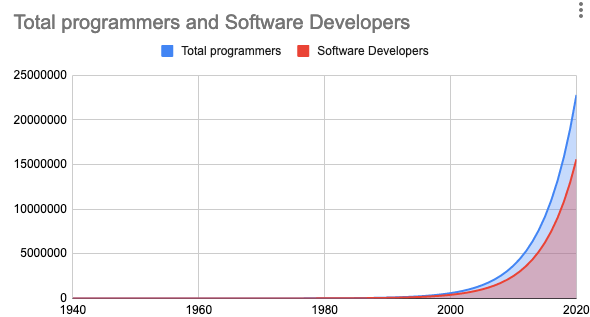JFall 2020 - Sustainably growing the guild of software developers
2020-11-05 Between 18:00-18:40 my lightning talk will be played at JFall. In 5 minute talk, consisting of 20 slides I will dive into the growth of the number of software developers in the Netherlands and analyze if it is sustainable. A summary: There is a continuous high demand for software developers. New developers enter our guild of software developers each year, but not enough to fulfil the demand. And to be honest, growing our guild in size alone is not enough, we want each member to become a capable craftsman/woman. So how can we increase the number of Software developers sustainably? Vincent takes a stance by calling on the responsibility of teams and patrons to help grow the profession of software development. He makes several suggestions for software developers and patrons to help our field grow sustainably. A preview of some of the suggestions: – Teams should have a healthy mix of senior and new developers. – A starting developer can grow faster by deliberately practicin...

